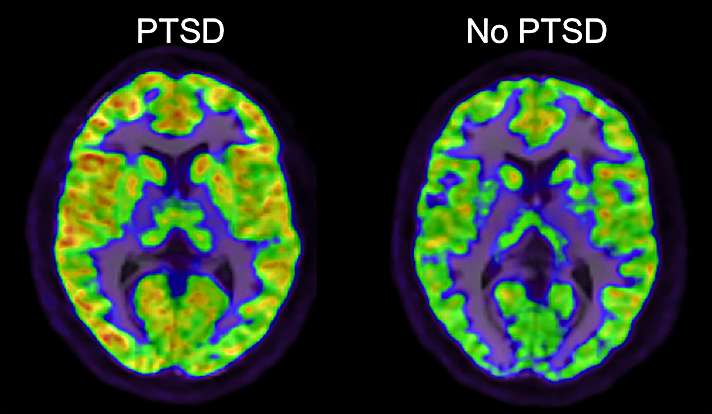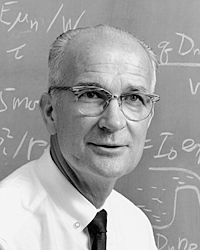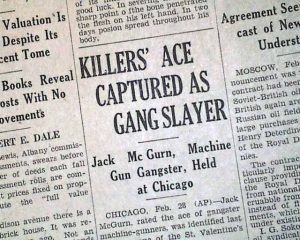Winner of the Fall 2018 StMU History Media Award for
Best Article in the Category of “Military History”
Best Article in the Category of “Science & Technology”
Charles Meyers, a Medical Officer, introduced the term “Shell Shock” to explain symptoms of Post Traumatic Stress Disorder (PTSD) displayed by military after combat in World War I (WWI). Soldiers often experienced symptoms including fatigue, tremor, confusion, nightmares, impaired sight, and impaired hearing. Meyers assumed that these symptoms were caused by the soldiers’ exposure to exploding shells, not necessarily the trauma they were witnessing or going through. In these years, symptoms of widespread PTSD were considered “weak” traits for soldiers by their colleagues and bosses. Even society as a whole started to view these symptoms negatively, which led to the destruction of their relationships after the Shell Shocked soldiers arrived home.1
Military gave Shell Shock victims no sympathy. When soldiers were dismissed from their duties, they were given labels such as “cowardice” or “emotionally weak.” These labels led to soldiers being targeted for abuse from their own side, as well as mock trials in which they were convicted. The pardons they received weren’t honorable, so they were often ashamed of their disorder, which led to more mental issues among the soldiers like depression, anxiety, and even suicide.2

New treatments flipped understandings of how World War I caused drastic changes in the behaviors of these men. Treatment for Shell Shocked victims before Arthur Hurst’s “miracle treatments” were very harsh, as they were often treated with Electroconvulsive Therapy, emotional deprivation, shaming, and solitary confinement. Some of the lesser treatments were hypnosis, massage, rest, and dietary treatments.3
Arthur Hurst primarily used occupational therapy to treat Shell Shocked patients, treating them as humanely and sympathetically as possible. This dignified care allowed for the increased numbers of “saved” soldiers, as they found ways to overcome the abuse and the labels given to them after their dishonorable discharges. Hurst’s treatments became iconic after the Newton Abbott’s Seale Hayne in Devon. Hurst’s approach allowed for 90% of Shell Shocked soldiers to be cured after only a single session.4

Modern day treatments, consist of therapy, as well as new medicines that aid in the control of the symptoms. According to Michael James, a pharmacist, there are Selective Serotonin Reuptake Inhibitors (SSRIs) that block the re-uptake of serotonin in the brain and help with sleep disorders, nightmares, and decreases intrusive thoughts. James also informed me that Serotonin Norepinephrine Reuptake Inhibitors (SNRIs) block the re-uptake of serotonin and norepinephrine in the brain which also decrease intrusive thoughts and provide aid for sleep disorders and nightmares.5
Hurst’s approach led to a change of heart and a consensus to the overall approach by society as a whole. Now, Veterans Affairs, also known as the VA, has a large program that provides aid to veterans with PTSD. However, this evolution of PTSD has not only been beneficial to veterans, but it has also allowed for a more diverse diagnosis of PTSD, in which it is more understood that other people, in addition to veterans, can also experience PTSD. PTSD can be caused from any sort of trauma including car accidents, violent crimes, and domestic violence. Individuals can even develop PTSD from having someone important abandon them as well. The DSM-5 has set a variety of symptoms for PTSD because just like any other disorder, it affects every individual differently. This document allows all individuals to gain access to the tools and help they need to recover from or live with PTSD.6

- Caroline Alexander, “The Shock of War,” Smithsonian Magazine, September 2010, https://www.smithsonianmag.com/history/the-shock-of-war-55376701/. ↵
- “Shell Shock,” BBC Inside Out, March 3, 2004, http://www.bbc.co.uk/insideout/extra/series-1/shell_shocked.shtml. ↵
- “Electroconvulsive Therapy: A History of Controversy, but Also of Help,” The Science Explorer, January 13, 2017, http://thescienceexplorer.com/brain-and-body/electroconvulsive-therapy-history-controversy-also-help; “Arthur Hurst: The Man Who Filmed Shell Shock,” BBC Radio 4, http://www.bbc.co.uk/programmes/articles/4VqPtrjsgcPKtgmYc2M5vXz/arthur-hurst-the-man-who-filmed-shell-shock. ↵
- “Arthur Hurst: The Man Who Filmed Shell Shock,” BBC Radio 4, http://www.bbc.co.uk/programmes/articles/4VqPtrjsgcPKtgmYc2M5vXz/arthur-hurst-the-man-who-filmed-shell-shock. ↵
- Email with Michael James, September 11, 2018. ↵
- Pete Walker, From Surviving to Thriving (Scotts Valley, CA: CreateSpace Independent Publishing Platform, 2013), 13-14. ↵



160 comments
Nicholas Robitille
It truly is a shame how these pre-modern heroes were treated, simply due to a scientific misunderstanding. By diagnosing these afflicted soldiers as cowardly and weak, we drove many of these sickly heroes to very dark places. I truly hope that nothing of this sort happens again, and that scientific research grows fast enough to prevent this from happening with future similar situations.
Breanna Perry
I was sick to my stomach reading about how poorly veterans were treated for having PTSD. PTSD is not something you can control, and it was just so unfortunate that nobody cared to help them. Thankfully, we have many treatments now, as explained in the article. Arthur Hurst truly is a blessing for helping the effected veterans and it was nice to learn about his work. I’m also glad to have learned that his work helped open the door for other treatment of mental health in general.
Cristianna Tovar
It’s heartbreaking to know that at first, our heroes were looked down upon by society when they would be dismissed from their duties after showing symptoms of Shell Shock. Who was the rest of society to judge if they hadn’t walked a mile in the soldiers’ shoes? Thank goodness that someone like Arthur Hurst was able to bring more “saved” soldiers to light by treating them with care and respect. As someone who is related to an individual that suffers from PTSD, I am so glad that society’s view of it has changed and that there are many resources available to help with this disorder.
Michael Lazcano
I think this is definitely something that our government and us as a society should seek to understand more, and be more compassionate to those who are affected by PTSD. Any soldier who is thrown into combat, whether they experienced little to no combat, or lots of combat should be given proper treatment to combat this neurological disorder. With our advancing technology, and with the youth being a more accepting society this is the right time to get those who are affected by PTSD into clinics or seeing a therapist. Arthur Hurst is truly a hero when it comes to treating the soldiers and making this a more well known phenomena.
Javier Camacho
Having family and friends of family that suffer from PTSD, I find it amazing learning how people of authority used to see this disorder as weak minded or scared to continue in their career. I have seen how this disorder can effect everything about someone from their personality to the way they act around their friends and family. Personally, I think this is something that is often forgotten or never taken as seriously as it should be by people who do not understand the disorder. While many people suffer from PTSD, I think we should make the communities we live in more aware of the issues that this disorder causes with people.
Alin Bocardo Felix
It is a terrible thing to see how veterans are treated, both then and now. We have come a long way in accepting PTSD and researching new ways to help victims, but we still have the issues of insufficient treatment, or rather, unaffordable treatment. Countless veterans are homeless, and why? Because of PTSD, and although many argue that that is not the issue because we now have science to back it up, we don’t have humanity. These veterans can not afford treatment, or anything for that matter, end up homeless, and the cycle repeats. The article was well written for the historical part of it and contains great information in regard to the development of the issue.
Gabriella Urrutia
It is disappointing to hear that soldiers that had PTSD used to be seen as weak and were treated differently because of it. Luckily, today it is not seen as being weak and there are resources available to help soldiers that have PTSD. Since we know more about it, we are able to help those that are being affected by it.
Mark Dominguez
A very enlightening and fascinating article, this article helped me develop a better understanding of Post-Traumatic Stress Disorder. It is very disheartening to see how honorable soldiers were mocked or considered weak after going through such traumatic events. I find it appalling that these veterans were receiving dishonorable discharges over something that was out of their control. Nonetheless, it is remarkable that Hurtz was able to find a treatment for this illness.
Nicole Ortiz
It amazes me to see how far along being aware of mental health has come. There was a lot of things in this article that i never knew about like about how many soldiers that dealt with PTSD weren’t given the proper treatment for it and if anything, was dismissed as something that wasn’t worth treating. But I’m so glad that Arthur Hurst developed these treatments for shell shock to help these soldiers because it was the start of bringing more awareness to not only mental health in general but to mental health as well.
Addie Piatz
I have seen first hand the effects and devastations of PTSD. I’ve done research and read many things on it hearing about it using the term “shell shocked” didn’t ever come across. I didn’t know that term was an early form of whats more commonly known today as PTSD. It was very interesting to learn more about this disorder in such a well written manner such as this one. I also loved the author included a picture of the two brains side by side to show just how devastation this disorder can be on ones mental health.